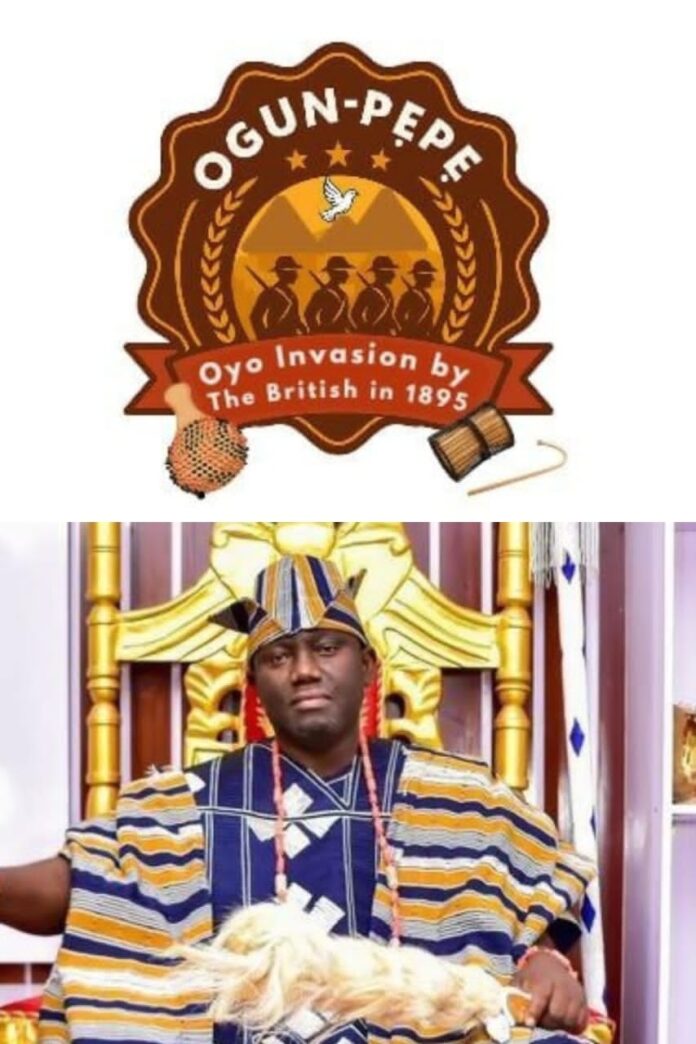Alaafin of Oyo, His Imperial Majesty, Oba Abimbola Akeem Owoade 1 and the people of Oyo town, are set to commemorate and memorialize the historical event culminating in the resistance that led to “Ogun Pepe” (the “Pepe War”) 130 years after the British imperialists invaded the palace of the Alaafin of Oyo.
Billed to be given a global relevance in November, the ancient town will witness a week-long activities that will showcase the tradition, customs and prowess of the Oyo Empire, as well as the dogged spirit of resistance of domination by its traditional leaders, as exemplified by the Alaafin Adeyemi Alowolodu I on November 12, 1895.
Considered too powerful, too autonomous, and too proud for their control, the Alaafin of Oyo was seen by the British Imperialists as the next target after some kingdoms in Yorubaland had been subdued, among them: Oba Kosoko of Lagos, following the bombardment of Lagos, and the Awujale Ogbagba I, after the Danasungbo War.
A minor dispute broke out following the castration of a man named Bakare, an Ilari (a royal messenger or eunuch) in the court of the Aseyin of Iseyin, Oba Adeyeri I. Bakare had been accused of committing adultery with one of the Oba’s wives. As per longstanding Yoruba custom, Iseyin, being a provincial domain under Oyo, deferred such grave capital matters to the authority of the Alaafin.
Upon Bakare being brought to Oyo, and Alaafin Adeyemi ordering his castration as a form of punishment in line with traditional royal codes.
Captain Robert Lister Bower, the stern and imperial-minded British Resident and Travelling Commissioner in Ibadan felt infuriated and declared that the Alaafin had overstepped his bounds. He demanded the custody of both Bakare and the messenger, Kudeefu, who carried out the castration, but Alaafin Adeyemi refused, and instead, had Bakare executed , and continued to shield Kudeefu. The open defiance of British authority was the final straw that led to “Pepe War”.
Bower led a force of sixty soldiers to invade the Oyo metropolis to subdue the Alaafin and enforce British demands, but the citizens of Oyo, loyal to their monarch, took up arms to defend their Oba and their sovereignty. Fight erupted, and as the situation intensified, Bower called for additional ammunition from Ibadan, where the British had stronger influence. With superior firepower and reinforcement of about two hundred soldiers, the British forces eventually overwhelmed the local resistance. The sharp, staccato sound of British gunfire during the attack—”pepe ! pepe !! pepe!!!” – thus became the origin of the name: “Ogun Pepe”.
In the war, the Alaafin was injured in the leg but mysteriously escaped to Oke-Owinni where he reported Bower to the Catholic Bishop of Oyo. After six days of intense war, the Catholic Bishop mediated and after a negotiated Treaty, Alaafin was allowed to make a triumphant entry back to his Palace. The citizens of Oyo celebrated his return with great fanfare, hailing his resilience and symbolic victory.
The planned ceremonial re-enactment of the “Ogun Pape” by the Alaafin and his subjects therefore stands as a testament to the resilience of Yoruba sovereignty in the face of imperial aggression and confrontation. This commemoration seeks not only to remember that moment of loss but to draw enduring lessons that speak powerfully to our present and future existence.
Alaafin will also employ the memorialization programme to unveil some of the strategies he is employing to repatriate some of the artifacts, including: crowns, gold, beads and other monumental items, that the British soldiers took away from the palace during the “Pepe” War.






